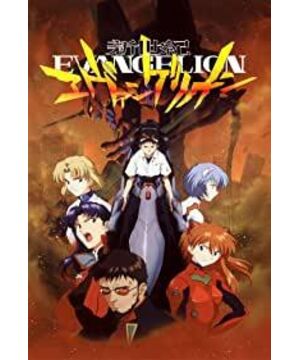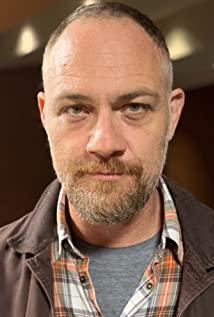why are you alive?
What are you afraid of?
what do you want?
...
about the value of life -
Shinji operates EVA because he wants everyone's praise and approval, Rei operates EVA because it is her mission, Asuka operates EVA because she wants to be independent and to be noticed... If EVA is lost, they will also lose your own life. No one will care about them like that anymore, and those friends they know will no longer smile in admiration at them.
In order to get people's attention and recognition, they had to put their lives at stake, accumulating what they were after in the struggle with the apostles again and again, but step by step toward deeper confusion.
The three protagonists are all designed as children with distorted childhood experiences, as Kensuke once joked: "EVA drivers are all weird people". Shinji watched his mother disappear in the first EVA machine when he was a child, and then was abandoned by his father; Asuka was ignored by his mentally broken mother since he was a child, and watched his mother call his name to a doll, and then found that his mother was torn apart. She committed suicide as a doll for herself; Rei's childhood was a blank, she came back to life again and again, with an immortal soul and an infinite body.
The director seems to attach great importance to childhood determinism, and the three people with tragic childhoods are still unable to escape that shadow when they are teenagers. Whether it is Shinji's obedience and evasion, Rei's indifference, or Asuka's domineering... These are just external manifestations of the same or opposite to their hearts. Their hearts are the same panic, confusion and emptiness.
They are looking for meaning and value in life, they want to know where they came from and where they came from, and they want to be one with others all the way to ultimate perfection. This is not just the wish of the three of them, but the general appeal of most people, which is why the unknown but huge plan related to the fate of mankind is called the "Human Complementary Plan". A single individual is always lonely and empty, and it takes many broken hearts to gather together to complement each other and become a complete whole. This reminds me of Adler's theory of inferiority complex compensation. We are born incomplete and imperfect. Such incompleteness is the source of our inherent inferiority complex and incompleteness, but it is also the driving force for our continuous pursuit of improvement and transcendence.
About life and death -
before Zhu Xun appeared, all the characters in EVA were tirelessly pursuing to maintain "life". No matter how dangerous the environment is, no matter how desperate life is, it seems that everyone has never thought of giving up hope, but in the cracks of fate, they will do anything to maintain the survival and reproduction of themselves and their compatriots. In order to fight against the apostles, people did not hesitate to use the replicas of the enemies they cultivated to defeat the enemies. "Fighting poison with poison and conquering foreigners with barbarians" is a common method used by the Chinese, but on the other hand, it appears insidious and vicious. Then Zhu Xun appeared. As the 17th apostle, the Angel of Freedom, he went deep into the zero area of dogma and met Lilith who was hung on the cross. When the big hand of the first EVA machine held him in the palm of his hand, he just smiled faintly as usual, hoping that his friend Shinji would give him death as a gift. He is an angel of freedom, and the ultimate freedom he seeks is death. Here, I saw the indifference and detachment beyond life and death. Miri said that those who should survive the most are those who have the will to survive. If there is no such strong desire for life, then there is not much difference between death and survival for such people. Life and death are one, just different states of being. No joy in life, no pain in death. Maybe living is just a big dream, and death is another gorgeous adventure. People's obsession with life is nothing but a fear of the unknown realm of death. And since life and death are the same, there is no difference between the pursuit of survival and the pursuit of death, but it is just a different choice for different people.
About freedom and stability—
In the vast white space, Shinji could see nothing, hear nothing, think nothing... This is freedom, absolute freedom. Since there is nothing, there are no constraints. But people are dazed and flustered.
Then, a line appeared, dividing the sky and the earth. So when people stepped on the ground, they gained a peace of mind, but they also lost a piece of freedom. One after another, all things appeared, and so did the people around us, so we sought to rely on various things and settle our minds, but because of this, we lost most of our freedom. We begin to live in the expectations and praises of others, and others live in the expectations and praises of others. People rely on each other, bind each other, and form a huge and intricate web that captures everyone. Among them, can not move. Fromm said that there are three major contradictions in human beings, the first of which is the contradiction between individuality and loneliness. Human beings are separated from nature and gain freedom, but they have also become "eternal wanderers" who can no longer escape the accompaniment of loneliness. Freedom and loneliness often go hand in hand. Pursuing freedom means breaking all shackles, and the company of compatriots is the greatest shackle.
Humans are social animals. From the initial cooperative coexistence to the current spiritual companionship, others are not only a good remedy for loneliness, but also a mirror for our self-knowledge and self-improvement. In our contact with the outside world, we see all kinds of ourselves, the me in the eyes of parents, the me in the eyes of teachers, the me in the eyes of classmates, the me in the eyes of friends, the me in the eyes of passers-by... and the me in our own eyes. Many of these mes make up a multifaceted self. The current self is no longer the so-called most authentic self, but a changed and distorted appearance under various constraints. In this way, I often make myself feel unfamiliar and then confused—who am I? And the id in that small initial state seems to have been squeezed into the deepest part of the soul by various desires and social relations, and has long since lost sight of its original appearance.
(To be continued...)
View more about Neon Genesis Evangelion reviews











